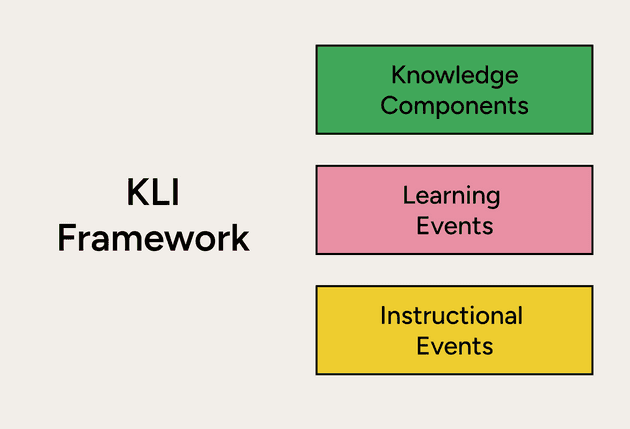The Knowledge-Learning-Instruction (KLI) framework connects three essential pieces in learning: Knowledge Components (what to learn) determine Learning Events (how learning happens), which then constrains Instructional Events (how teaching helps).
Why do debates about teaching methods never end? For example, should we use spaced repetition, worked examples, or open discussion?
These debates persist because we treat teaching methods as always good or always bad. But effectiveness depends on what you're teaching.
In 2012, researchers at Carnegie Mellon University and the University of Pittsburgh developed the Knowledge-Learning-Instruction (KLI) framework to provide a systematic answer. It connects three coordinated taxonomies:
- Knowledge Components define what to learn. They are the units of cognitive function students must acquire, ranging from simple facts to complex skills.
- Learning Events describe how learning happens. They are the unobservable cognitive changes that occur during learning, including memory strengthening, pattern induction, and sense-making.
- Instructional Events create conditions for learning. They are the observable activities teachers design to trigger learning, such as spacing practice, providing feedback, or facilitating discussion.
The framework shows dependencies. Certain knowledge types require specific brain processes, which then require specific teaching methods. You can't teach vocabulary the same way you teach problem-solving.
Therefore, good teaching isn't finding one best method. It's matching instruction to what students need to learn.
The KLI framework reminds me of the common factors in psychotherapy, which have a somewhat opposite conclusion. Success in teaching has a high dependency on the type of knowledge and specific method, but success in psychotherapy is not so much about specific techniques, but rather common factors such as a sense of shared goals.
